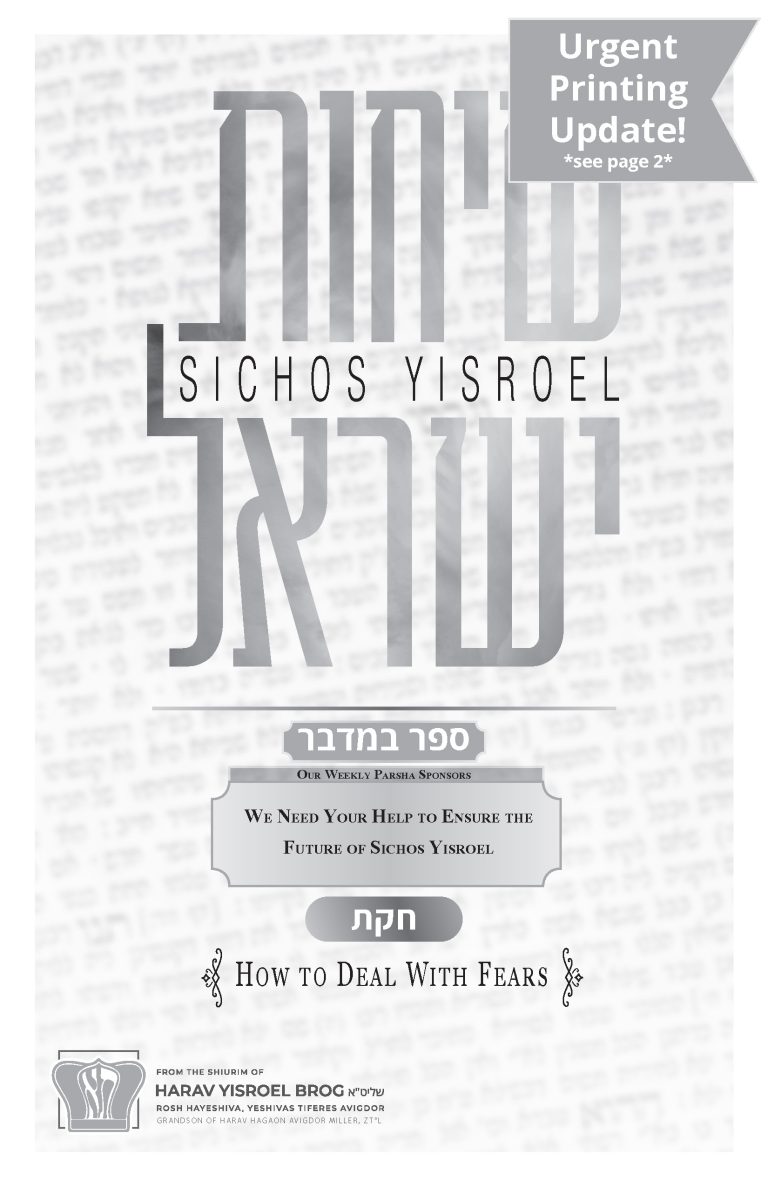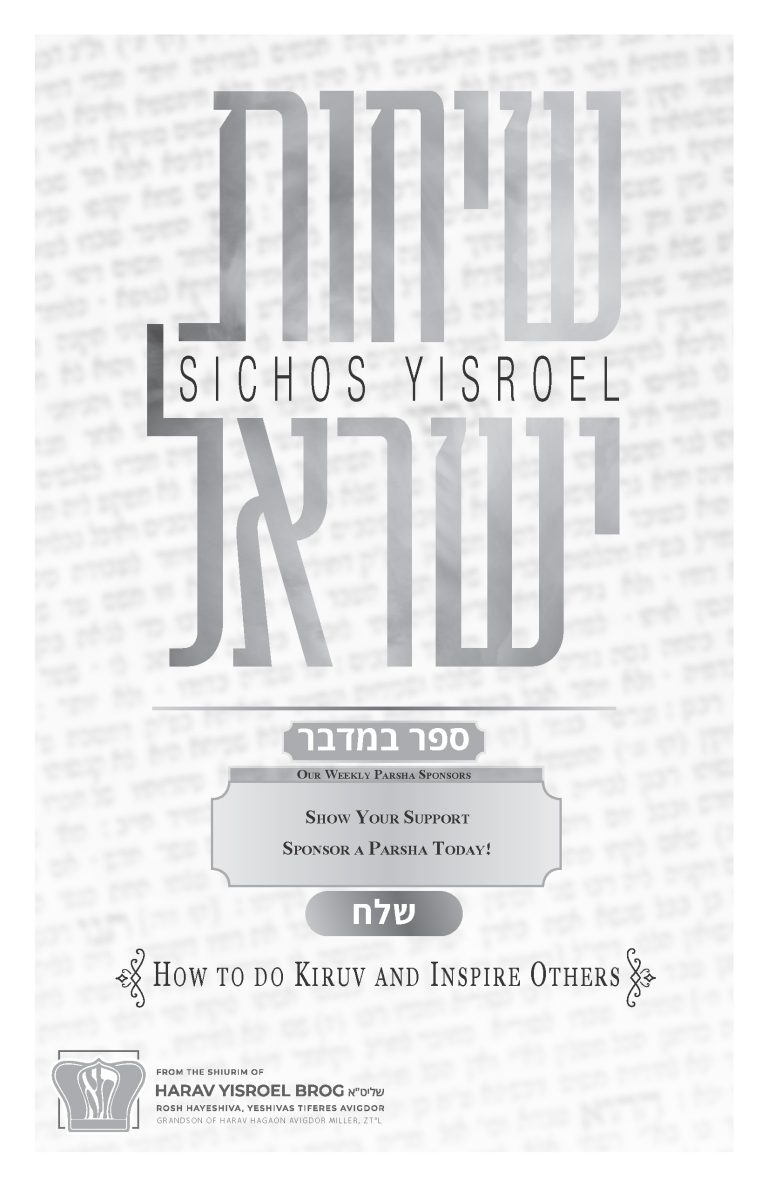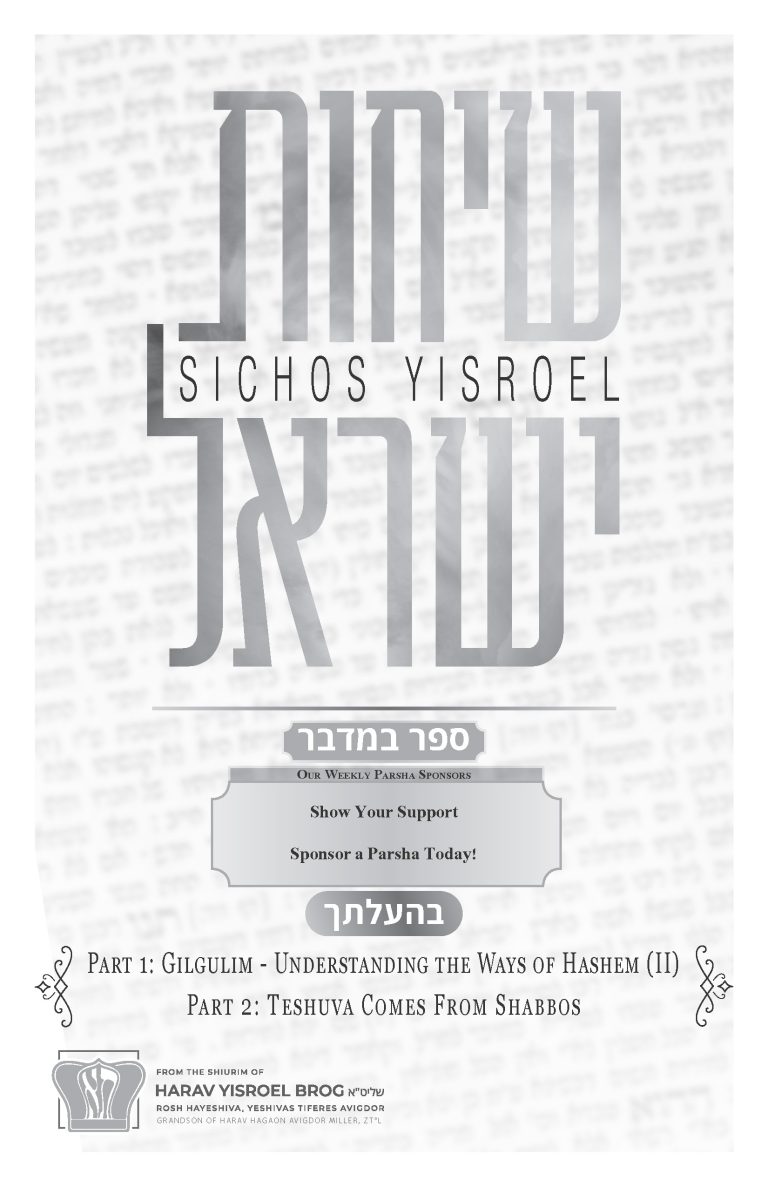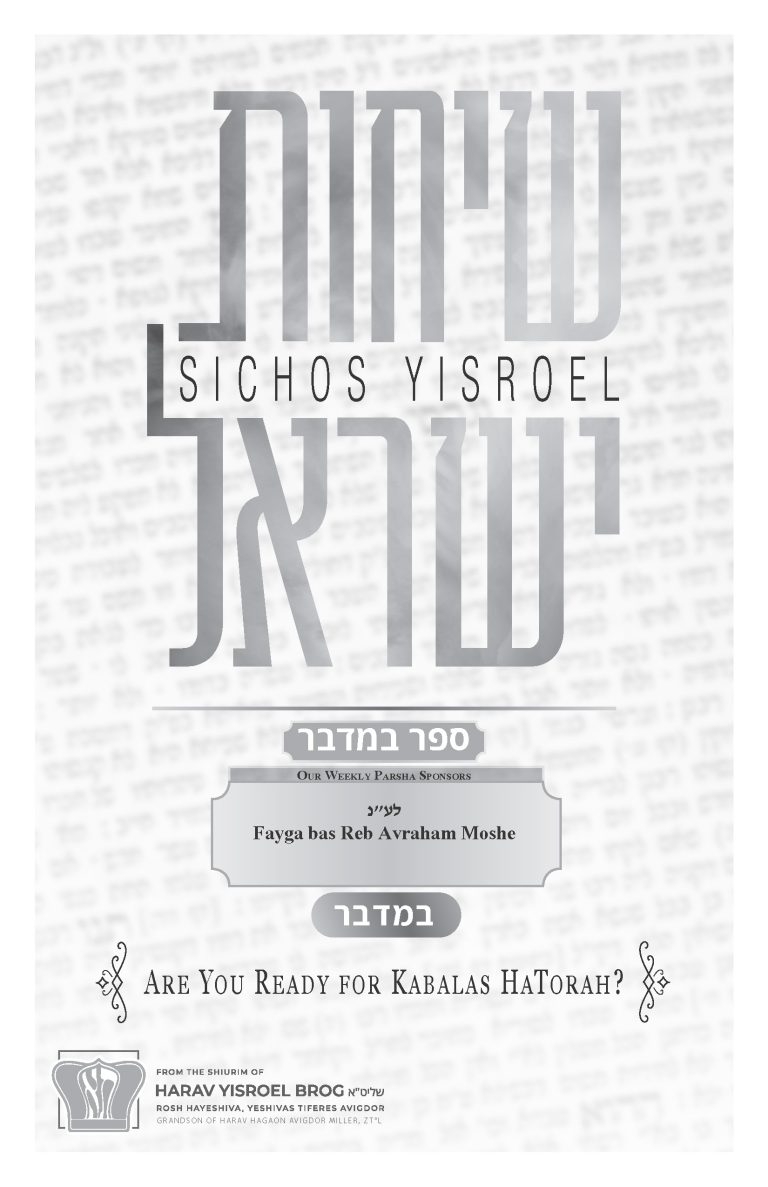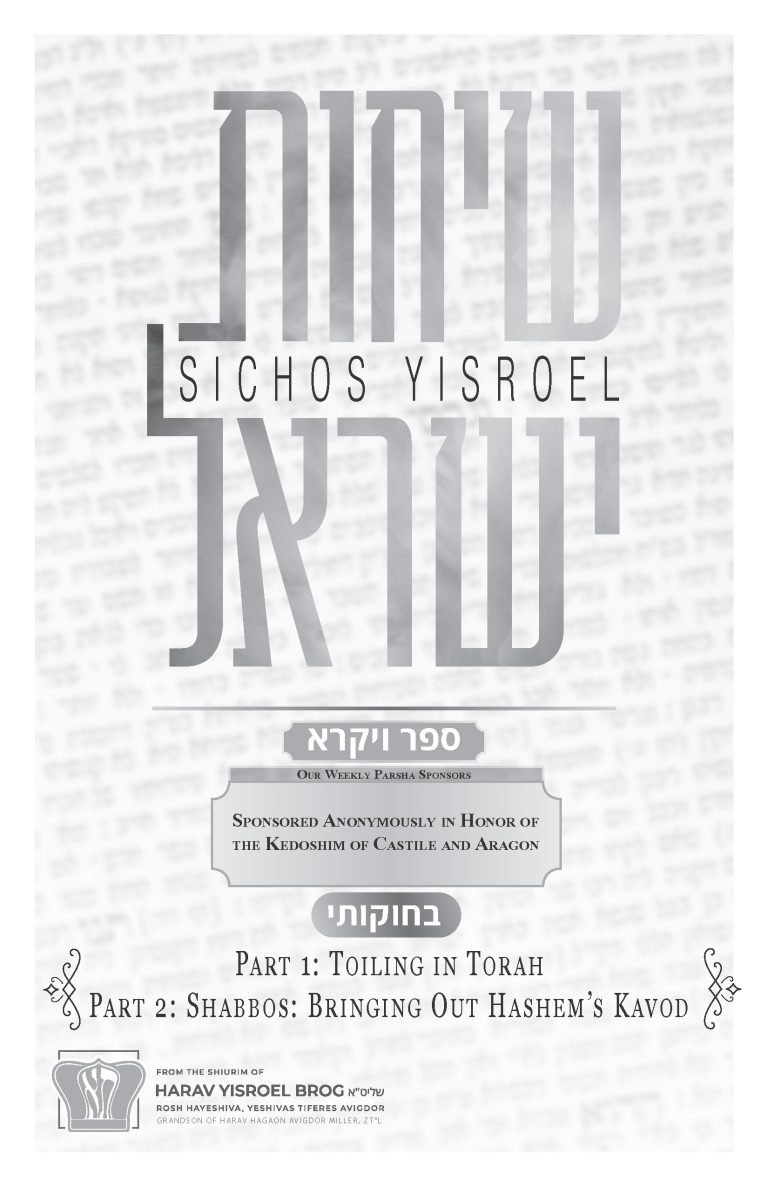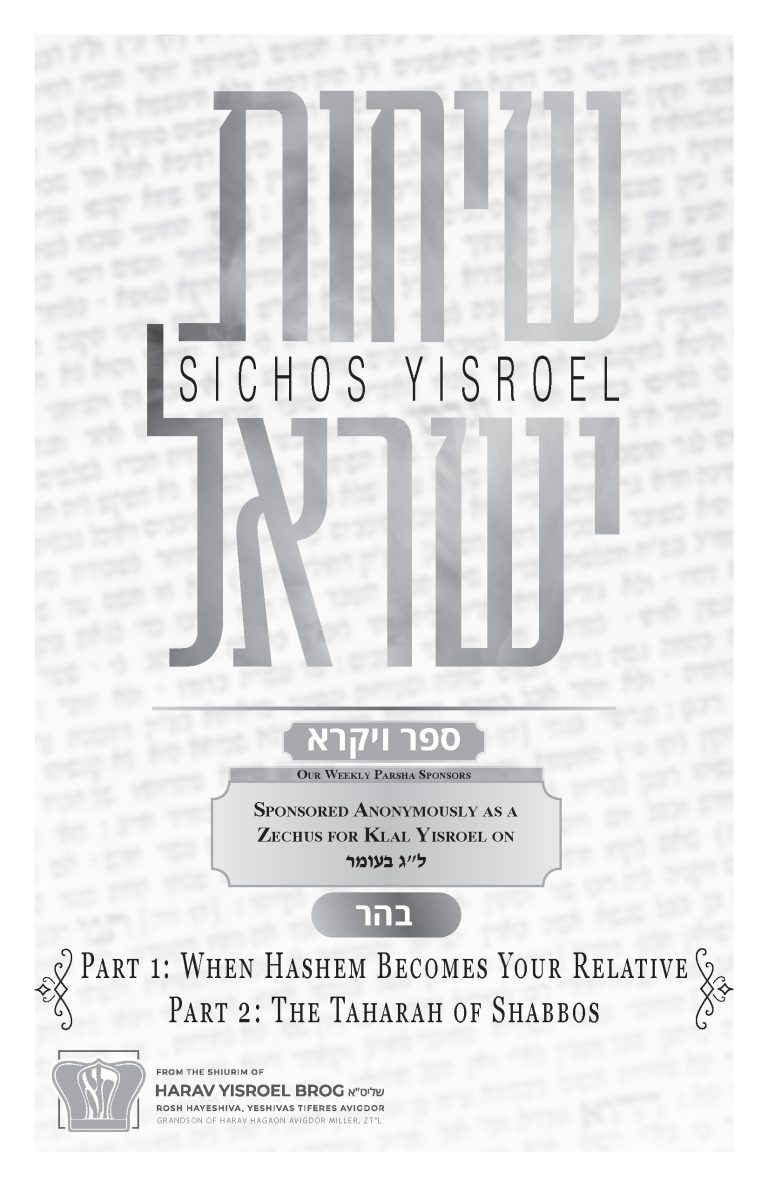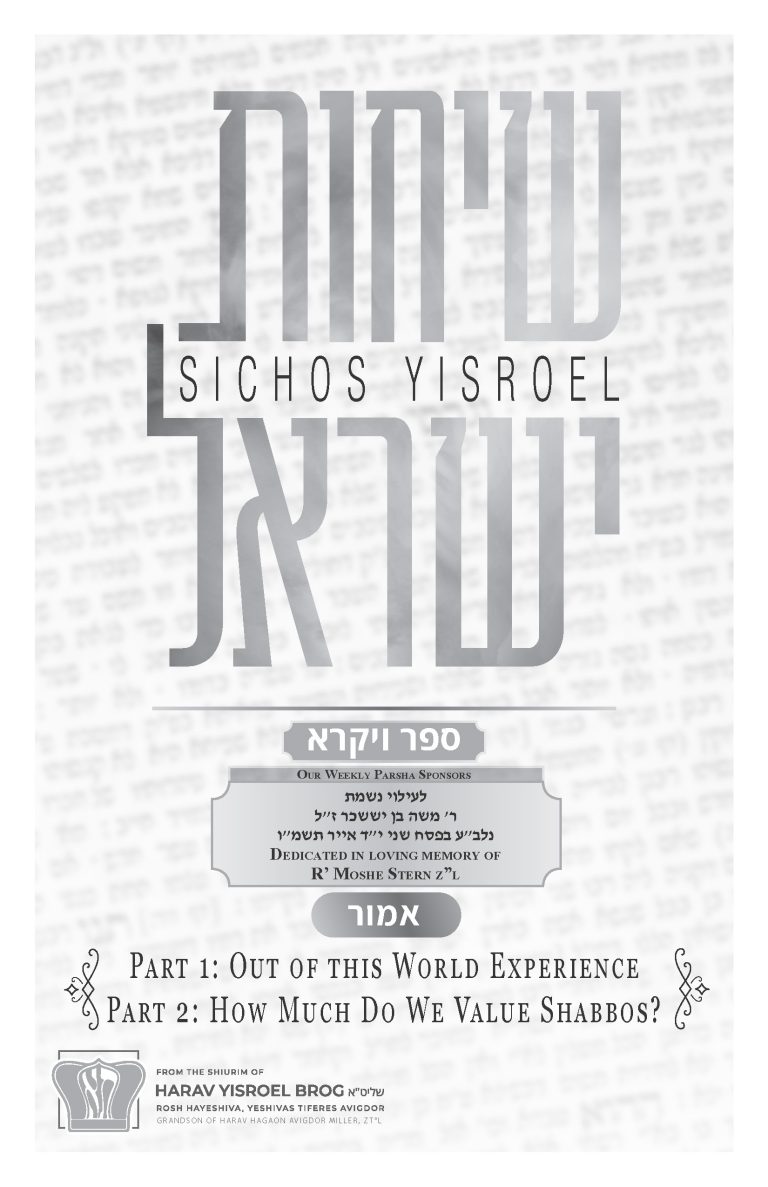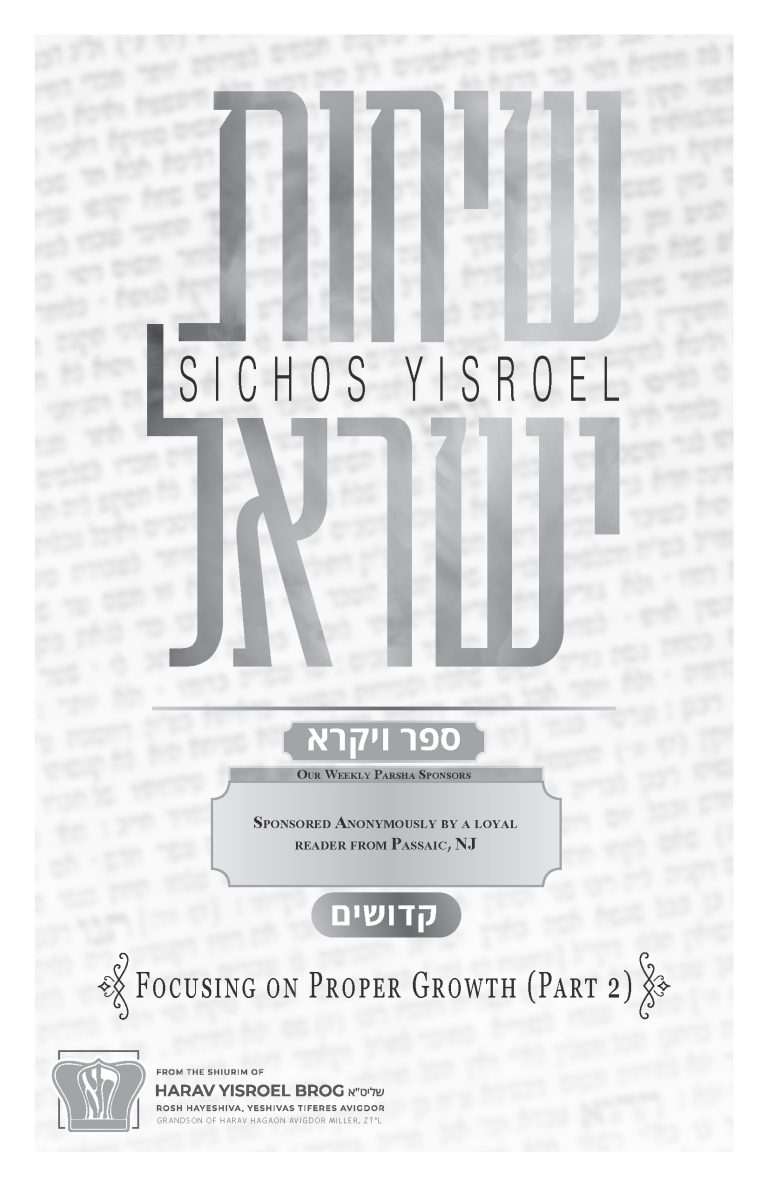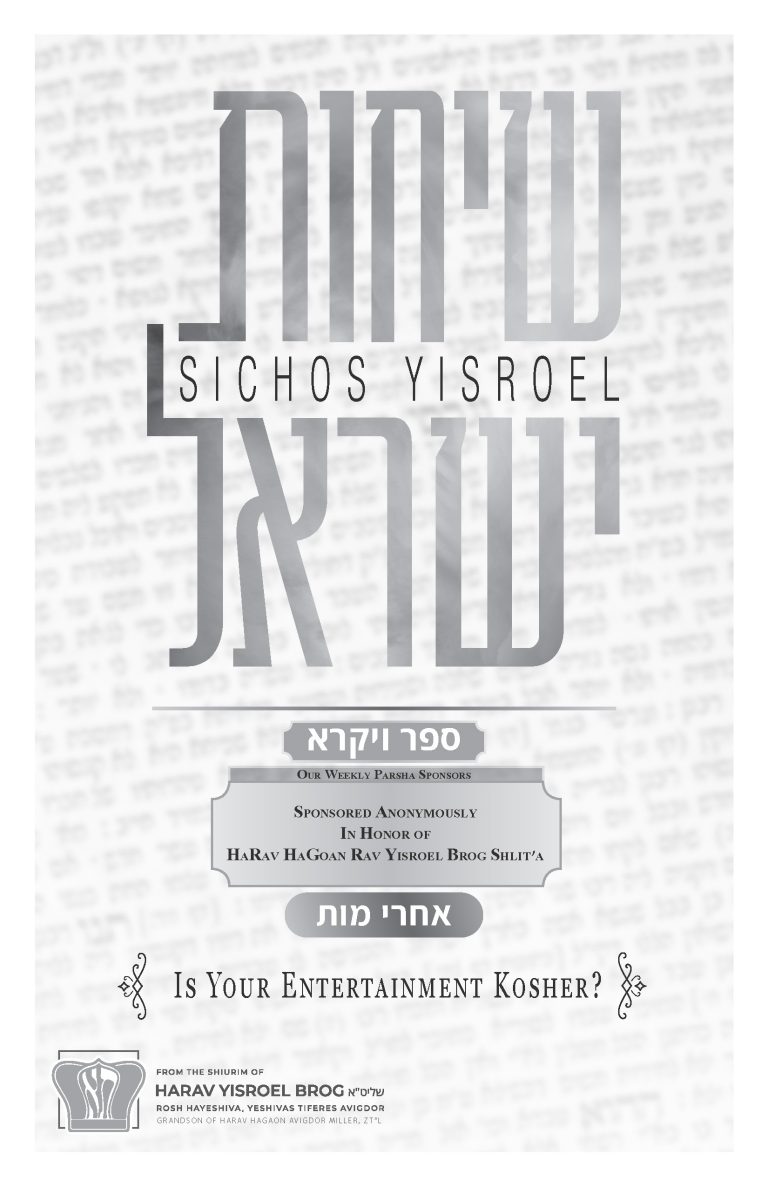Chukas 5784: How to Deal With Fears
Today, we’re going to discuss how to deal with certain fears. I’m going to introduce the topic with a story first.
There was a fellow named Rav Tuvia. Rav Tuvia used to come to a mosad once a week. The rebbe’im of this mosad held a weekly meeting, and he would be present to answer questions and suggest possible answers to issues they faced. He was an expert in dealing with issues, and he would tell them how to deal with various difficulties.
